Being pregnant is often thought of as one of the best times of your life. However, many women constantly worry that they may do something that would harm their baby. Women with anxiety may find being pregnant brings a whole new slew of things to worry about. With three pregnancy trimesters to get through, you may be wondering what you should be doing to boost your health.
But, with some good tips, you can have a healthy and happy pregnancy.
Read on to learn best tips, practices, and all about about pregnancy symptoms!
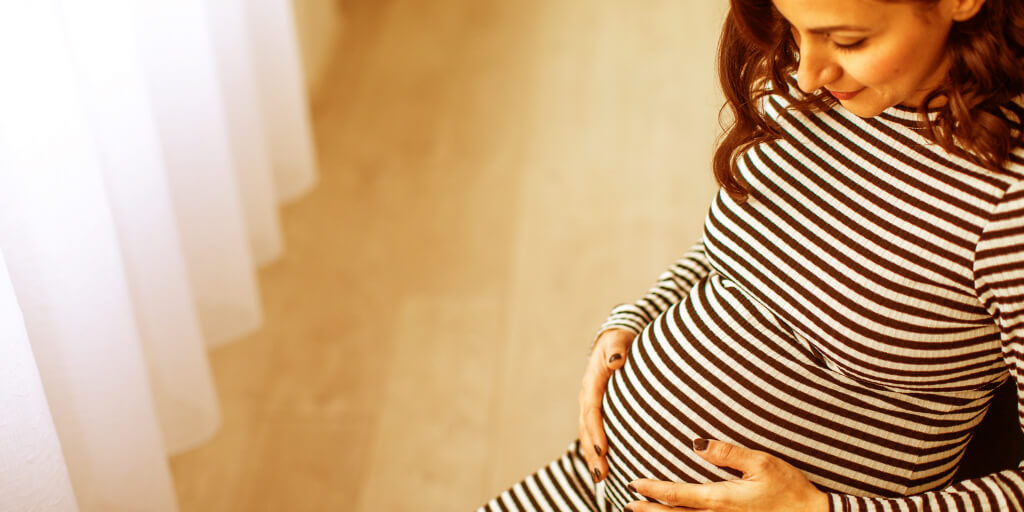
What are the 3 Pregnancy Trimesters?
A pregnancy lasting for 40 weeks.is considered full term. This is the time from the first day of your last period to the day your baby is born. Of course, not every woman is the same, nor is the pregnancy so some may end sooner and some can end later.
The pregnancy is divided in three trimesters, each three months long.
First Trimester
An early sign of pregnancy is your missed period. By then, you will already be at least 5 or 6 weeks pregnant. You have to understand that this will probably only be the week two of your baby’s development, but it will depend on the day of conception.
The best way to confirm a pregnancy is to get a blood test but you can also do it through a home pregnancy test. However, a home pregnancy test will be the most accurate if you take it at least a week after your missed period or later.
You will also experience other symptoms, aside from your missed period. For instance, you may feel:
- Tired or fatigued more often
- Nauseous
- Cravings (even some strange ones)
- Tender breasts
- Mood swings
- Heartburn
- Headache
- Weight changes
Keep in mind that these changes are most likely not going to happen right away, but rather a few weeks in, probably around the time of your missed period or later. You can also have no symptoms or have all of them, have too much of one and so on. Variations in symptoms are quite normal.
Your baby is experiencing plenty of changes too, even when you’re four weeks pregnant.
- Their nervous system will form
- The heart will form
- The legs and arms will start to form
At week 6 to 8:
- All of the major organs will begin to form
- Heart will start to beat
- Legs and arms will grow longer
- Develop buds for toes and fingers
- Sex organs will begin to form
- Development of more facial features
Finally, at 12 weeks:
- Nerves and muscles will work together
- Sex organs are defined (still may be too small to tell until 18-20 weeks)
- Eyelids will form and close
This is the end of the first trimester and the start of your second trimester.
Second Trimester
Most women find this part much easier and more comfortable, especially if they had a rough first trimester. Usually, nausea stops and the fatigue lessens. However, your bump will grow which may be a bit uncomfortable at first, until you get used to it. Some actions will be a lot harder than before – tying your shoelaces or picking something up.
But feeling your baby move – which also happens in the second trimester – is an amazing highlight.
However, there are more things you may feel in your second trimester:
- Aches in your back, abdomen, groin and thighs
- Round ligament pains as your uterus grows
- Stretch marks
- Linea nigra or trail of hair appearing down your abdomen
- Swelling in your ankles or your face
While this is happening to you, your baby is also going through many changes. This is the time of rapid growth and development.
- Skin will begin to form, transitioning baby from translucent to typical skin
- Musculoskeletal system will continue to form
- They will start making sucking movements and even beginning to suck their thumb
Later, at week 20, your baby will:
- Your baby will be more active and you will feel it moving
- Develop fine, lanugo hair all over their body
- They will get eyebrows, fingernails, eyelashes and toenails
- Be able to hear and practice swallowing
At week 24, they will:
- Develop taste buds and even taste flavors from mom's food
- Start to form hair, which may or may not fall out after labor
- Lungs will form, although they won’t work yet
- They will have a sleep cycle; you may feel a regular schedule of quiet and movement times
- Develop distinctly unique footprints and fingerprints
After week 27, your third trimester will begin.
Third Trimester
This is the final stage of your pregnancy. You may continue to feel uncomfortable with certain movements as the baby grows. Most pregnant women will also have to urinate more frequently because of the pressure.
You may also feel symptoms like:
- Swelling
- Hemorrhoids
- Tender breasts
- Watery colostrum
- Feeling baby settle lower in your abdomen
- You may get false contractions, also called Braxton Hicks
- Shortness of breath
Your baby at around 32 weeks will:
- Have completely formed bones
- Eyes that open and close
- Lanugo will start to fall off
At week 36, they will:
- Have a waxy coating called vernix caseosa, which helps protect their delicate skin
- Increased amount of body fat
- Be close to birth size
- Their movements may seem less forceful but you will feel them
Beyond week 37, your baby is ready to be born and considered full term. However, the longer they stay inside your belly the better, at least until 40 weeks. If your baby isn't growing too large and you feel fine, many doctors have the mom-to-be stay pregnant until 41-42 weeks to allow birth to start naturally.
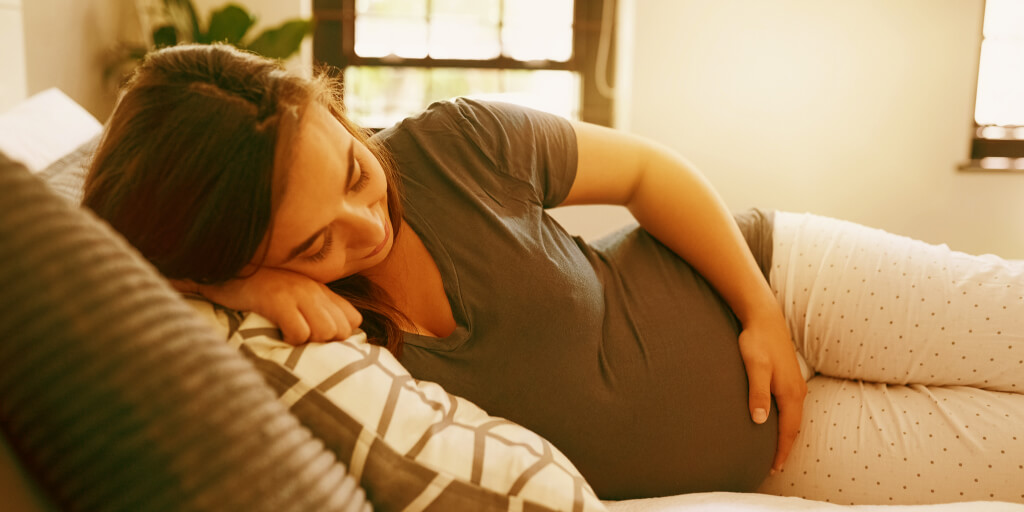
Which Trimester is the Most Crucial for Development?
All of the trimesters are equally important. However, you probably want to know what trimester is the most crucial for your baby’s development.
And that would be the first trimester.
This is the time when you should be extra careful about the environment you are in and the things you do. Taking folic acid supplements or a great prenatal vitamin is essential so that your baby’s nervous system can develop properly. This is also the time when all of the organs begin to form.
So, you can see why this period is so important.
This is also the most common trimester for miscarriages to occur. It's important to remember that while you should maintain healthy habits, some pregnancies are not viable and not carried to term. The body typically won't continue to carry a nonviable pregnancy and this is not due to any fault or wrongdoing.
To maintain healthy habits, you can start practicing before you get pregnant & make sure to:
- Avoid alcohol
- Don't smoke or stay around people who are smoking
- Stay active
- Eat a well-balanced diet
- Avoid areas of strong pollution
However, don’t allow stress to take reign of your pregnancy experience. Do your best to live the healthiest lifestyle possible and enjoy.
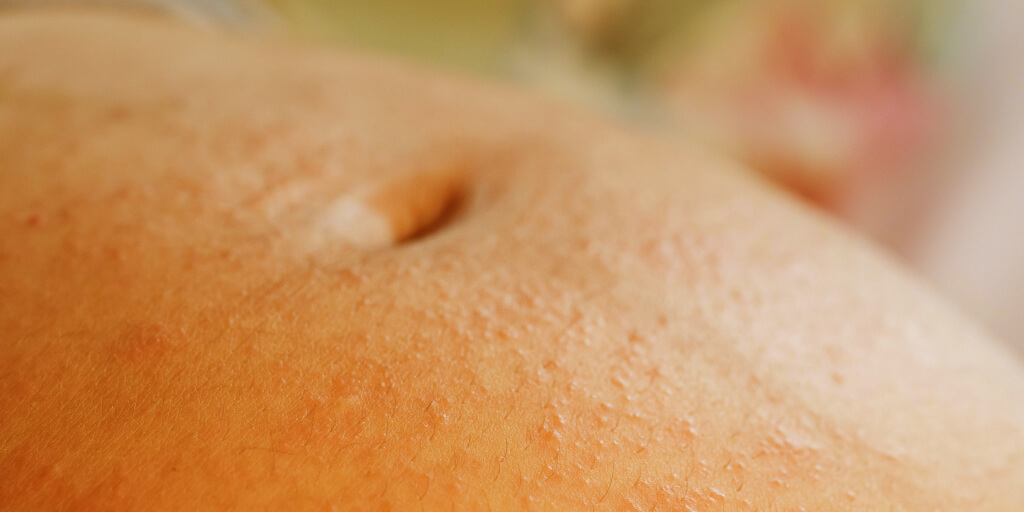
Naturally Treating Pregnancy Acne
So, you are pregnant and happy as can be and you want that happiness to show. But pregnancy acne can be an annoying effect of pregnancy. It affects your skin health and it can seriously ruin your mood, especially if you were hoping for that dewy pregnancy glow!
Pregnancy acne often happens in the first and second trimester and it’s caused by the increase in hormones. Women who often get breakouts on their periods will be more likely to get pregnancy acne.
Here are some tips to treat them in a natural way:
Apple cider vinegar – Mix one part ACV with three parts water and create a toner that will clear your face naturally. Tone your face with this every morning and evening to clear it from the excess oils and dirt.
Baking soda – Mix one tablespoon of baking soda with one tablespoons of water and use it on your face for spot treatments. It will dry your pimples and help them go away faster.
Witch Hazel – Use witch hazel to treat acne with powerful anti-inflammatory and anti-viral properties. Look for alcohol-free formulas, to avoid stripping your skin of necessary oils. As an added bonus, witch hazel will come in very handy for treating any post-labor stiches.
Honey – Since honey has antibacterial and antiseptic properties it can soothe your skin and help you lose those acne. Rinse your face with warm water and then apply honey to your face. Leave it on for a while and then rinse.
Coconut oil – Because of its antibacterial and antifungal properties, it can be really great for your face. Use it as a moisturizer.
Oatmeal and cucumber – Both of these have soothing properties that can help you heal from acne. Blend these ingredients in a blender and apply them as a mask. Then rinse after 10 or 15 minutes.
You can also try a DIY face mask as well as these tips:
- Don’t over-wash your skin – This will strip it from natural moisture. Wash twice daily with a gentle cleanser and follow with toner.
- Avoid scrubbing – Gentle exfoliation is better than scrubbing, which can irritate and even spread acne bacteria.
- Don’t scratch or pop these pimples. Try spot treatments and daily cleansing.
- Stay hydrated with water and eat a healthy diet.
- Rest, relax and avoid stress as much as you can.
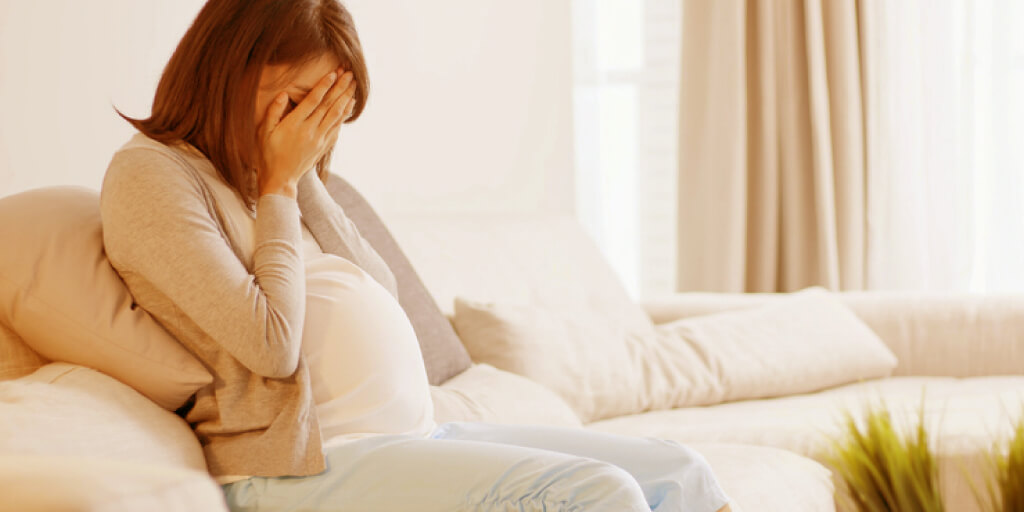
How Do You Deal with Pregnancy Depression?
While pregnancy should be a happy and joyful time, the hormones often makes us feel the opposite. Many women can feel overwhelmed with the sudden responsibility for another life and the countless sacrifices, struggles, and unknown challenges coming in the near future. Sometimes, these feelings are temporary but sometimes they are more permanent and can start to impact your life.
This might mean that you have depression, which can occur during any point in the pregnancy trimesters.
It’s quite common, but as with many mental health topics, not widely discussed. As more and more women share their stories and resources are made available, people are seeking the help they need. Neglecting your mental health, especially while pregnant, can negatively impact your health and the future health of your baby.
Some signs of pregnancy depression are:
- Lack of focus
- Hard time sleeping
- Chronic tiredness
- Loss of appetite or overeating
- Feelings of worry and stress
- Irritation, sadness
- Low self-esteem
Since this is dangerous for both you and your baby in the future, you may want to know how to improve your condition. Here are some ways:
- Talk to someone about your feelings; don't hide or try to minimize them.
- Ask for help from a professional; seek a second opinion if you feel your doctor is not helpful.
- Take care to minimize your stress and reach out to loved ones.
- Join a support group online for prenatal depression.

Tips for Having a Successful Pregnancy
Even before your baby is born, you want to be the best mother possible to them. So, here are some important tips that you can use to have a successful time throughout all pregnancy trimesters.
- Keep regular prenatal visits with your doctor
- Take vitamins that your doctor prescribes for you
- Don’t either start or stop getting medicines without talking to your doctor
- Have a healthy diet
- Don’t smoke, take alcohol or do drugs
- Don’t gain or lose too much weight
- Take a childbirth and child care class
- Get enough sleep
- Ask for help with tasks instead of doing dangerous things on your own.
Do you have any tips for navigating through pregnancy trimesters? Feel free to share in the comments down below!
Sources:
https://www.healthline.com/health/pregnancy/calendar#first-trimester
https://www.healthline.com/health/pregnancy/acne-remedies#best-practices
http://www.parentguidenews.com/Articles/TipsforaSuccessfulPregnancy

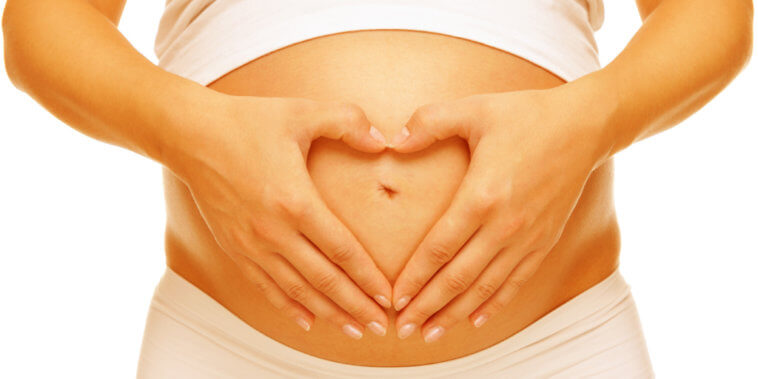


Comments
Loading…